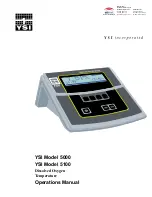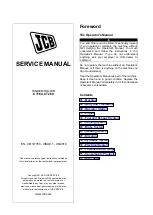
Sissy Squat
6
1.2
Personal safety
+ Before you start using the equipment, you should consult your physician that this type of
exercise is suitable for you from a health perspective. Particularly affected are persons who: have
a hereditary disposition to high blood pressure or heart disease, are over the age of 45, smoke,
have high cholesterol values, are overweight and/or have not exercised regularly in the past year.
+ Please note that working out excessively can seriously damage your health.
+ The equipment may only be used for its intended purpose; that means for training by adults.
+ Any other usage is prohibited and potentially dangerous. The contract partner cannot be held
liable for damage resulting from improper use.
+ The equipment is strictly for use by one person at a time.
+ Children should not be allowed unsupervised access to the equipment.
+ Before starting your training, make yourself familiar with all of the equipment‘s functions and
setting options.
+ Make sure that nobody is in the range of motion of the equipment while exercising.
+ Keep your hands, feet and other body parts, hair, clothing, jewelry and other objects well clear of
moving parts.
+ During use, wear suitable sports clothing rather than loose or baggy clothing. When selecting
sports shoes, think about the suitability of the sole – preferably this should be made of rubber or
other non-slip materials. Shoes with heels, leather soles, studs or spikes are not suitable. Never
work out in bare feet.
+ At the first signs of weakness, nausea, dizziness, pain, difficulty in breathing or other abnormal
symptoms, stop your workout immediately and, if necessary, consult your physician.
1.3
Set-up place
+ The equipment should only be used indoors, in a sufficiently heated and dry area (ambient
temperature between 10°C and 35°C). The equipment should not be used outdoors or in rooms
with high humidity (over 70%) like swimming pools. The equipment should only be stored in
surroundings with an ambient temperature between 5°C and 45°C.
+ The training room should be well ventilated during training and not be exposed to any draughts.
+ Choose a location in which to place the equipment such that there is enough free space/clearance
to the front, the rear and to the sides of the equipment (at least 1.50 m). Furthermore, the
equipment should not be set up in main entrances or on escape routes.
+ No objects of any type should be inserted into the openings of the equipment.
+ The equipment should be placed on a level and solid surface, any unevenness in the floor should
be leveled out.
+ A floor protective mat / equipment underlay can help to protect high-quality floor coverings
(parquet, laminate, cork, carpets) from dents and sweat and can help to level out slight unevenness







































